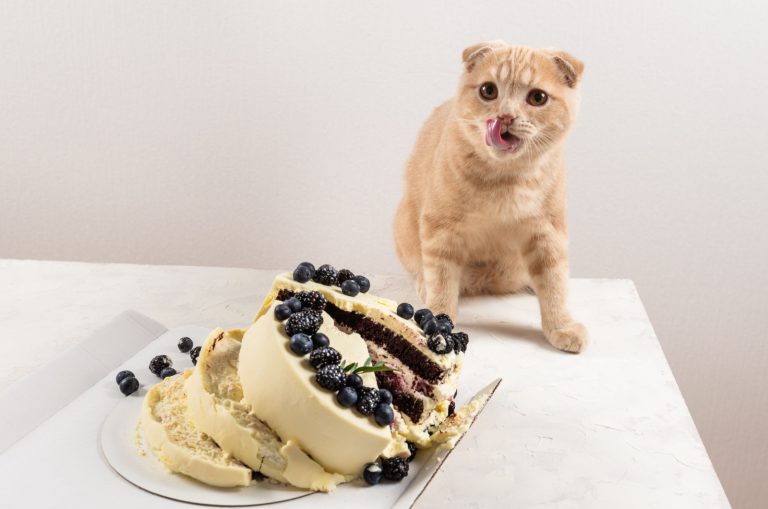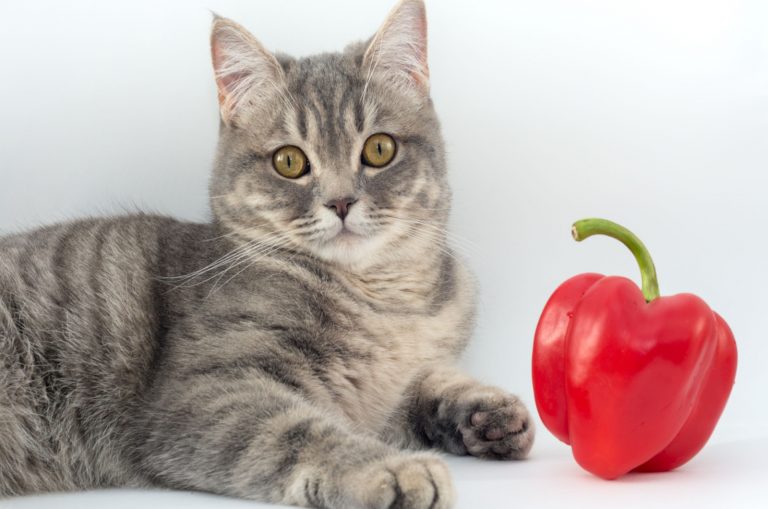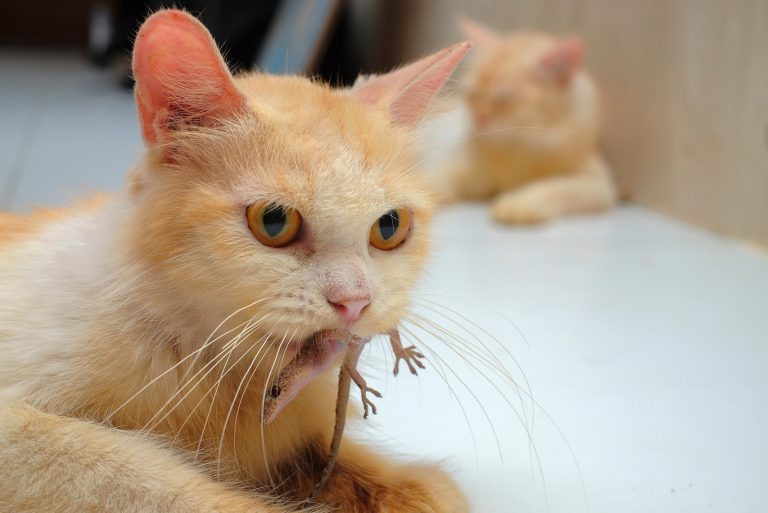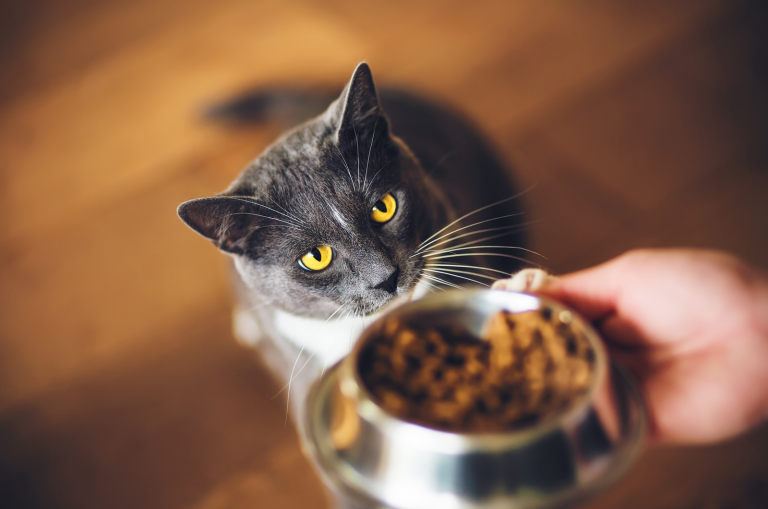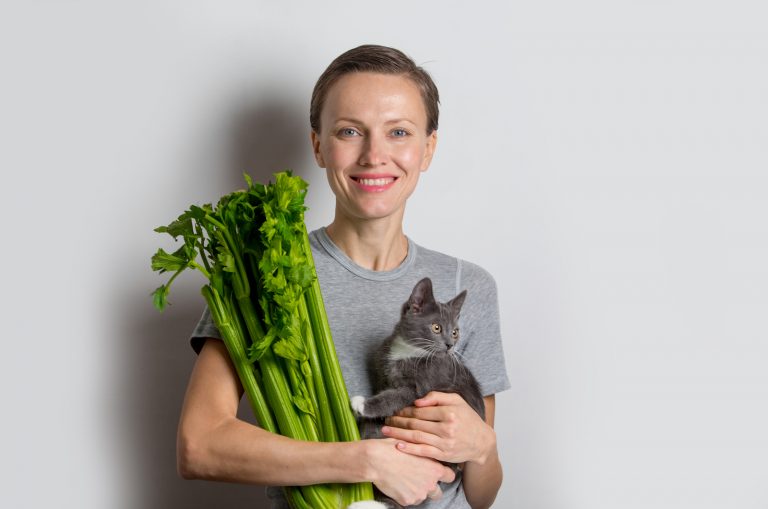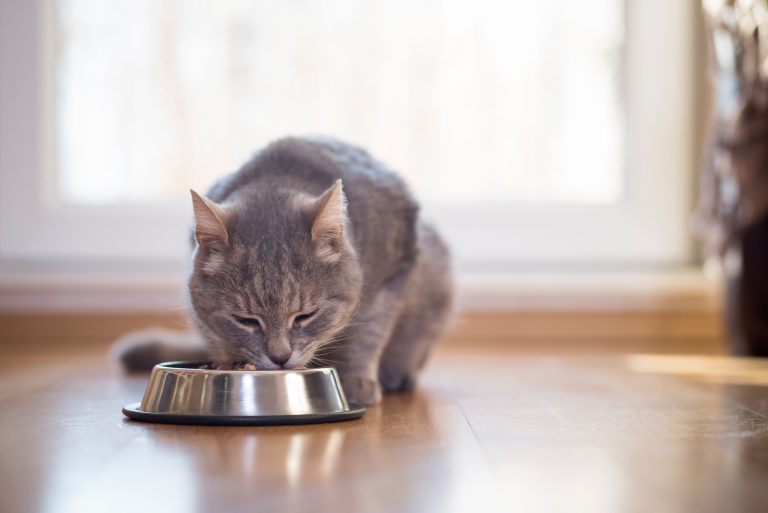Can Cats Eat Pasta? Wait A Meow-Ment!
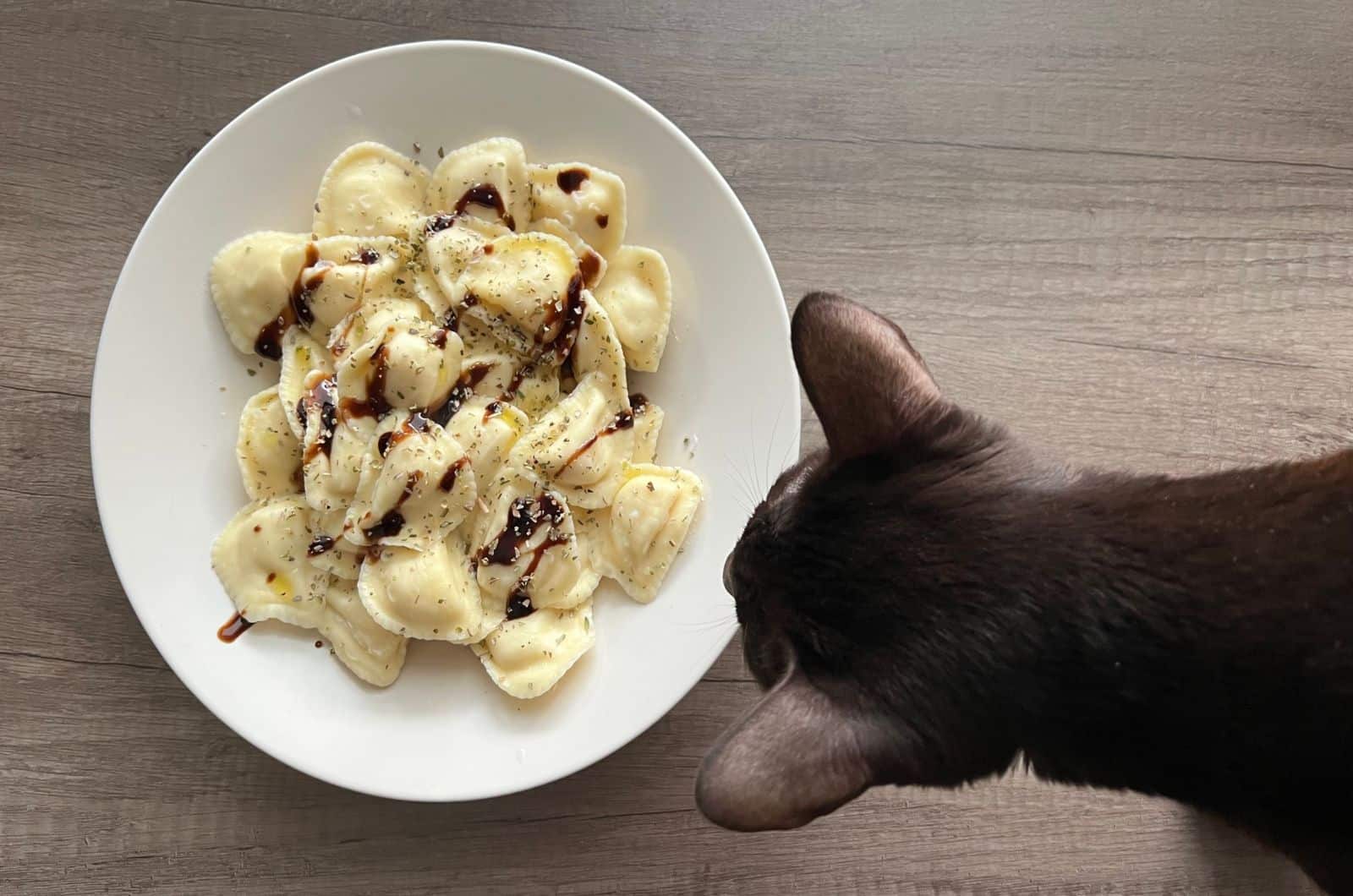
Wheat flour, water and eggs mixed together offer us a beloved comfort food – one which our feline friend may be interested in…
Pasta is cheap, versatile, delicious, and easy to prepare… No wonder it is among the most popular dishes around the globe. It is a good source of energy, too.
What does pasta offer in terms of a cat’s diet, nutrition, and health? If you are reading this article, you are obviously wondering if pasta is a good choice for your feline friend.
Maybe you want to check whether some instant noodles, dried pasta, or lasagna would be suitable for your furry friend.
Perhaps you have also noticed cute videos or Insta-friendly photos of cats having some spaghetti, and you want to know is pasta safe for cats before offering your own kitty some?
It is certainly a good idea to find out what’s good for our cat’s health first and forget about social media trends!
Without question, our cat’s health is something we should be very careful with if we want our feline companions to live long, happy lives.
So, can cats eat pasta? – The answer is both yes and no, and we shall soon see why. We need to take into consideration many things, but with one important goal in mind – and that is to ensure that our furry friends stay happy and healthy.
Can Cats Eat Pasta? What Are The Dangers?
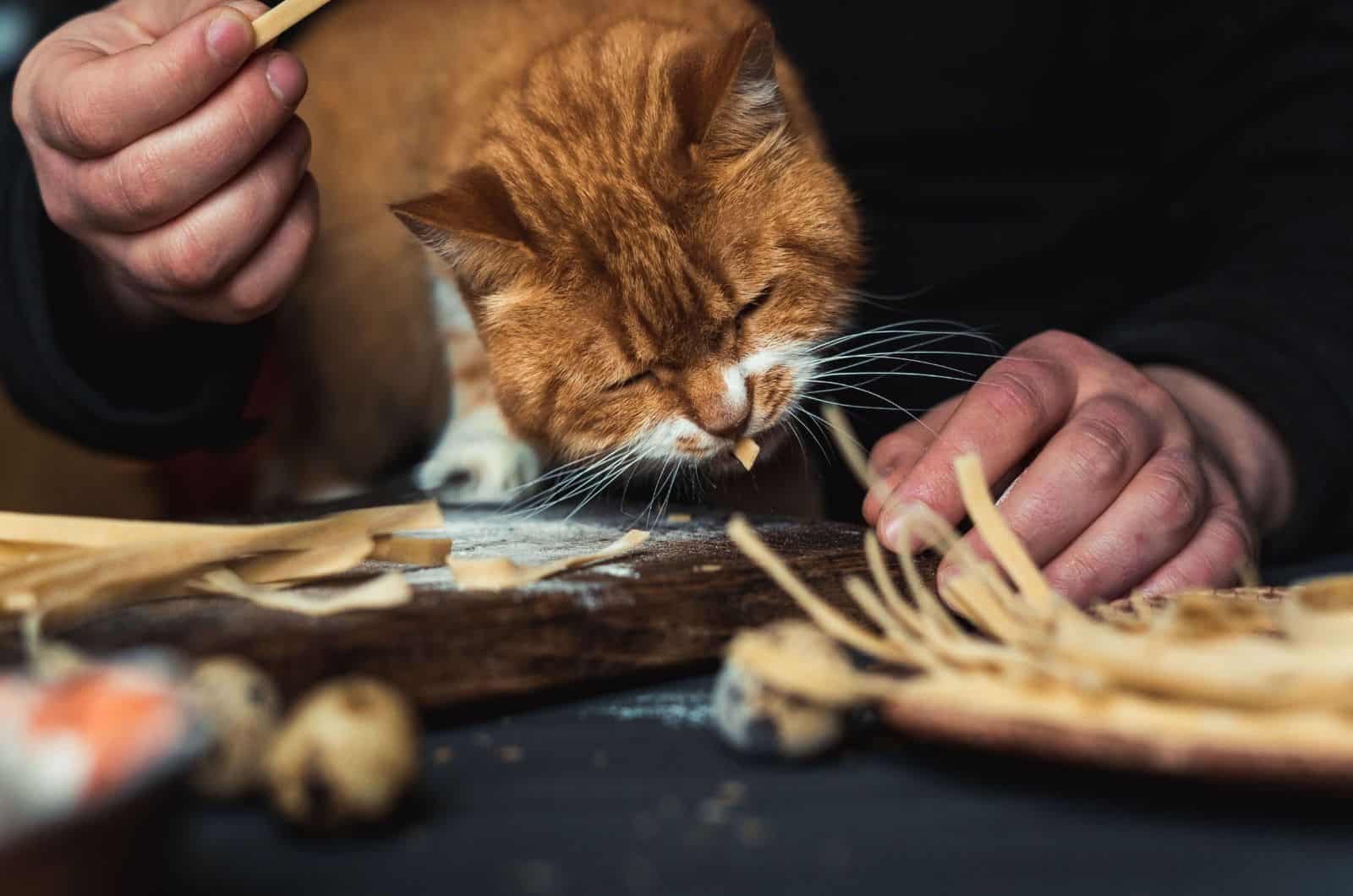
So, we’ll start with the main question: can cats eat pasta?
Pasta is okay for cats because it contains simple ingredients such as water, eggs, and flour that aren’t harmful for cats.
However, cats cannot benefit from eating pasta! This means it’s not the best choice for them because it is rich in carbs and contains gluten – a well-known allergen.
Plain pasta may not be detrimental for health, but popular pasta seasonings and sauces can be problematic due to poor nutritional value, empty calories, and toxicity.
Possible Health Issues
If we want the best for our furry friends, we should bear in mind that pasta consumption may cause several health problems, including digestive issues, obesity, diabetes, protein deficiency, and the list goes on.
Why is that so? Well, science suggests that high-carbohydrate diets could be detrimental for a cat’s health!
Basically, large amounts of pasta are not good for felines, but small quantities from time to time will not hurt them, unless they are allergic to gluten or other pasta ingredients.
As for pasta seasonings and pasta sauces, common ingredients such as garlic, onion, and some other spices, are actually toxic to cats!
Other varieties, such as chocolate pasta, are also poisonous to cats. In other words, this typical human food may be a real danger for these furry meat-eaters that we are so obsessed with.
Suggested Read: Can Cats Eat Hummus? It’s Not Recommended And Here’s Why
Should We Feed Pasta To Carnivores?
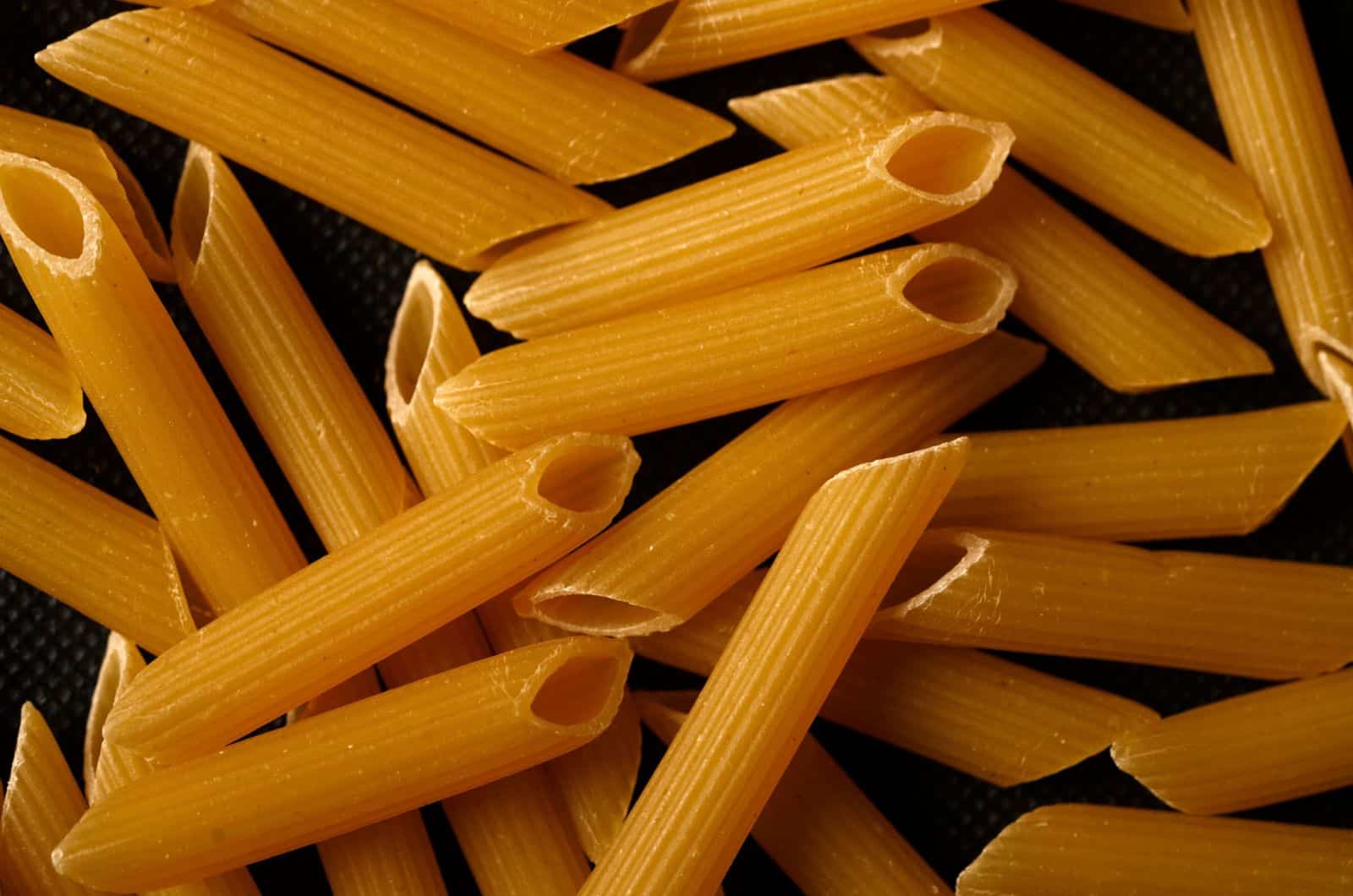
As mentioned earlier, the answer is both yes and no. According to experts, domestic cats closely resemble their wild ancestors in their metabolism and physiology. Let’s find out what this means…
Cute Kitties Are Obligate Carnivores
Let’s clarify this:
• Cats are obligate carnivores, which means that in order to meet their nutritional needs, it is necessary for them to consume meat.
In other words, pasta does not offer enough protein for felines and it also doesn’t contain the essential amino acids that are present in animal protein.
• Cats have a higher protein requirement than most other domestic animals (for example, dogs).
This might sound weird, but don’t forget that your furry pet belongs to the same animal family as the lion!
• When it comes to their well-being, a well-fed cat is a healthy cat indeed, and although there are various types of pasta, cat owners need to understand that the feline digestive system is not the same as, for example, the human digestive system.
So, typical human food may not be good for your feline.
The question of whether pasta dishes are good for a feline’s diet is a serious one if we want our furry friends to be fit and healthy.
While a small bite of pasta will not hurt your cat, large portions of it or frequent pasta snacks may cause health issues over time for these obligate meat-eaters.
You might also find this article interesting: Can Cats Eat French Fries Or Should You Avoid Them?
What Can Happen If You Feed Pasta To Felines?
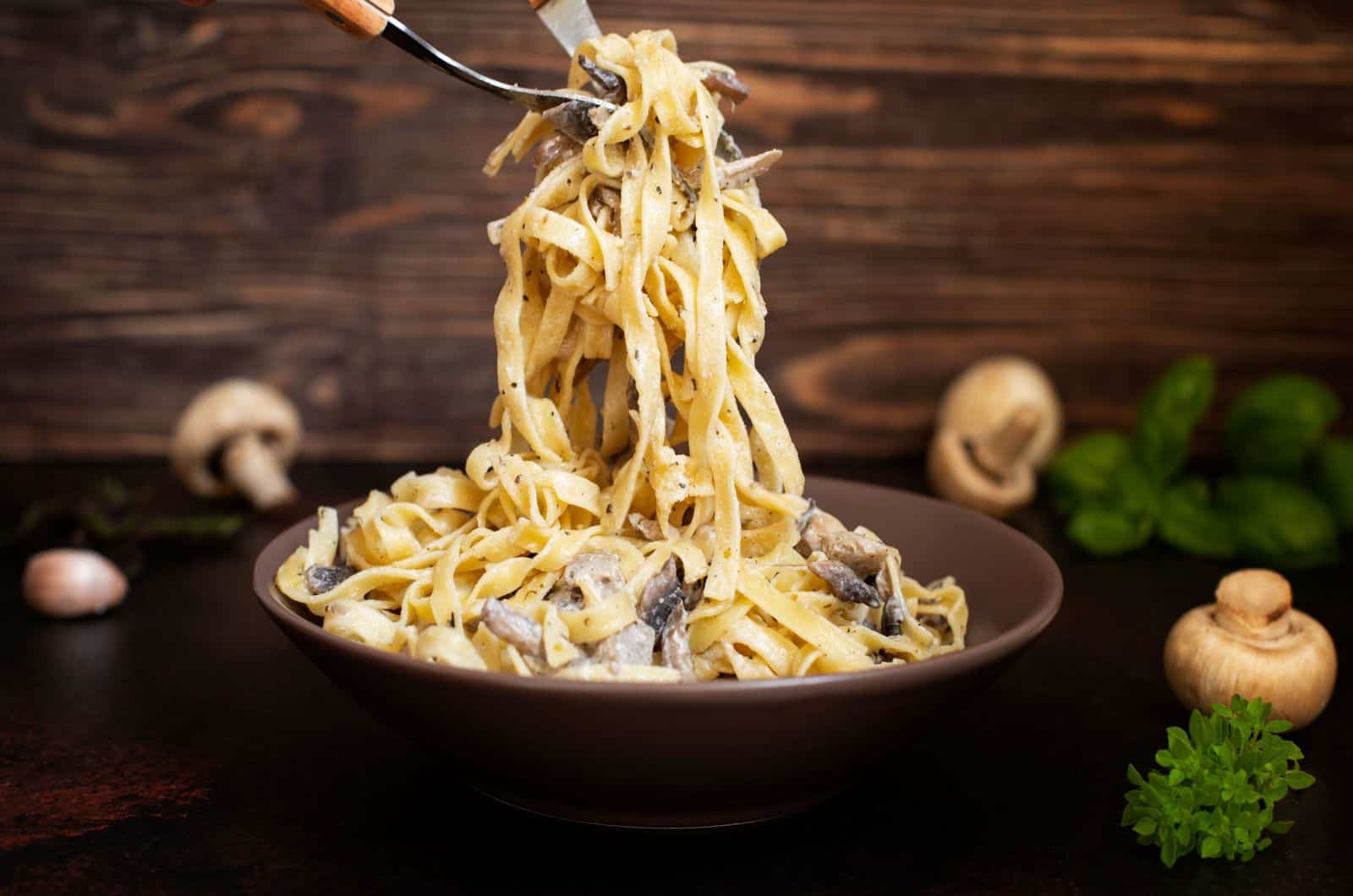
As mentioned previously, occasional, small portions of pasta shouldn’t cause any harm to your feline. On the contrary, frequent or large portions may certainly lead to serious problems, such as the following:
• First, a cat’s digestive system is sensitive and it can’t break down starch. Because of that, issues such as loss of appetite, diarrhea, vomiting, constipation, and abdominal pain can occur.
• Gluten allergy can occur in cats; you may recognize symptoms such as weight loss, asthma, chronic diarrhea, dry and itchy skin, and vomiting.
• If you wonder can cats eat pasta sauce, well, tomato sauce often contains too much salt and tomatoes on their own contain a substance that is toxic to cats.
• Cats also don’t tolerate dairy (they can’t break down lactose), which means that pasta with a cheese topping could cause vomiting, diarrhea, or constipation. This might confuse you because kittens drink milk, don’t they?
In fact, when cats are born, just like humans, they have lactase (enzyme) which can break down lactose. The problem is that many adult cats like milk, but they no longer have the enzyme that helps them to digest it.
How To Feed Cats Pasta In A Safe Way?
Although pasta is far from purr-fect cat food, and there’s no such thing as cat spaghetti, felines can be quite curious when it comes to food in general. How to satisfy their curiosity? Or, what can you do if your cat really wants to try some tasty bolognese?
The answer is simple – let it have a small bite first, and then check its reaction.
See Also: How Long Does It Take A Cat To Digest Food? All You Need To Know
The Vet Is Your Friend!
If you are worried about possible allergies, you may want to ask your vet for some advice before letting them have a bite. It is always a good idea to listen to an expert’s advice first.
If a cat shows signs of digestion issues or some other health problems, make sure that you contact your vet to see what you can do next.
Small bites should be fine every once in a while, but if you notice any symptoms, simply stop feeding your furry friend pasta and call your vet for advice.
Dangerous Pasta Variants To Avoid Completely
Don’t forget that you should never feed chocolate pasta to your cat because chocolate is very dangerous for cats.
Also, make sure your pasta doesn’t contain too much salt either because salt is bad for cats too. As mentioned before, garlic, onion, and tomato sauce are a big NO as well.
You shouldn’t offer your cats raw pasta either. Why? Raw pasta would cause them digestive discomfort.. They simply can’t digest it and they should stay away from it.
What Should My Cat Eat Instead?
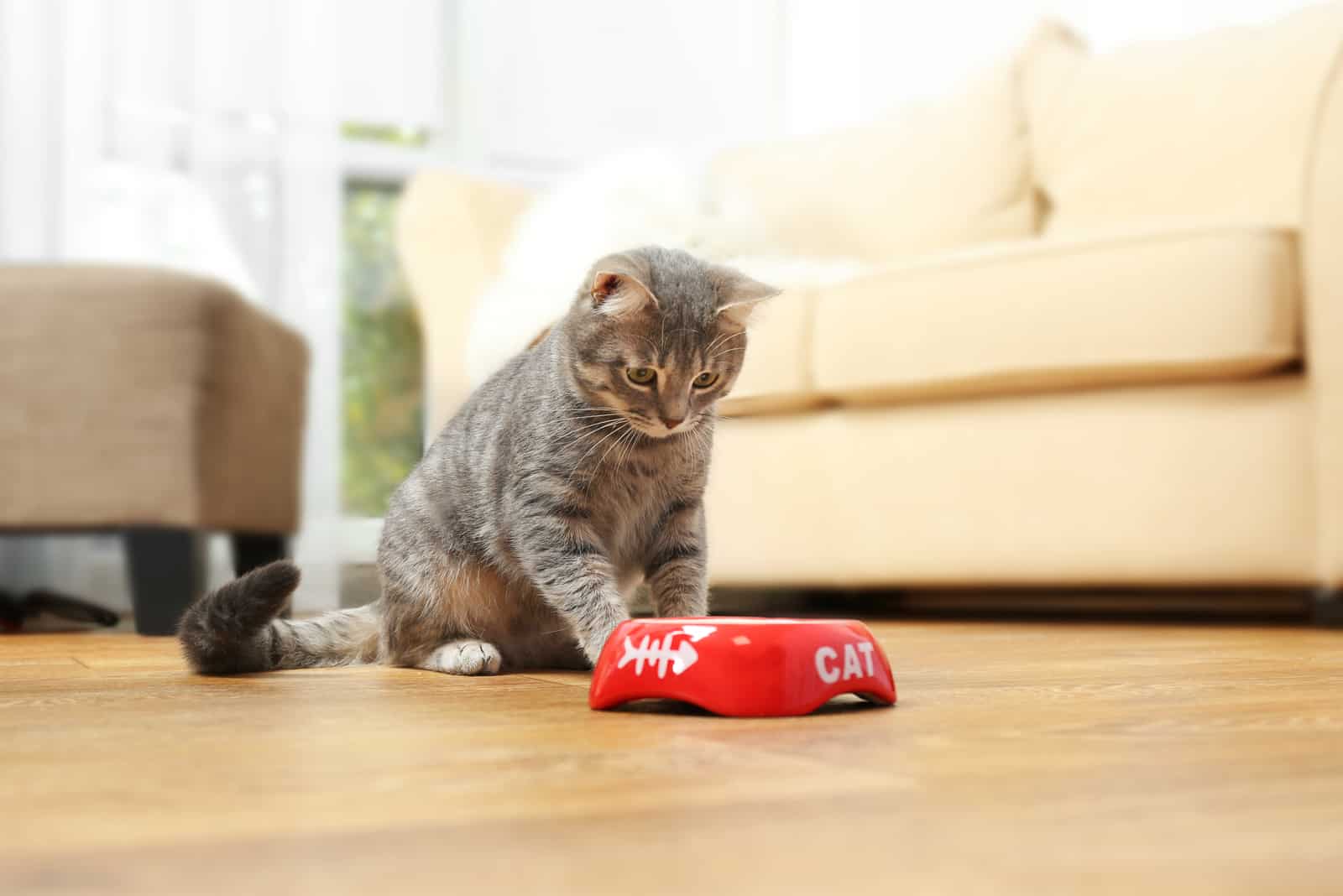
So far, we have made it clear that pasta in general is okay for cats as long as it’s offered rarely and in small amounts.
However, it’s not the healthiest option for your furry friends. But are there any good alternatives if you, for example, suddenly run out of cat food or if your cat just wants to try something different from its regular food?
Well, the short answer would definitely be yes. Luckily, there are some healthy options for your feline which are safe and delicious, and easily available.
If you want to learn more about healthy cat food and how to incorporate it into your kitty’s diet, I suggest reading Happy Whisker’s article on yummy cat breakfast ideas!
Healthy And Delicious Alternatives – Yum!
As a yummy alternative for pasta, you can offer your cat some plainly cooked turkey, chicken, pork, lamb, or beef.
Make sure you don’t get tempted to give your felines popular processed meats such as sausages or bacon because they contain preservatives that are detrimental for their health.
Yes, you have read that right – don’t offer that delicious bacon to your cat!
Next, you can consider raw meaty bones (for instance chicken drumsticks, necks, and wings). They are also a good choice since they keep felines’ teeth and gums healthy. That sounds good, doesn’t it?
Interesting Read: Can Cats Eat Chicken Nuggets? Everything You Need To Know
Finally, cooked eggs would be another great alternative since they are a good source of protein. If you remember – your feline friend needs tons of animal protein!
Final Thoughts
There are times when our graceful furry pets sneak around the kitchen or dining room to find out what smells so good. You might also find them cute eating a bowl of spaghetti and you may even want to take a cool photo of them enjoying one of the most popular dishes ever.
However, now we know that cats have special dietary needs because they are true carnivores.
They may not look like typical meat-eaters from the same family of animals as lions and tigers, yet both the domestic cat and the tiger belong to the same family – Felidae. Our cute little cats certainly don’t look like dangerous beasts with big, sharp teeth, but don’t let that mislead you!
Once again, can cats eat pasta? Cats can eat pasta, but they should consume it in very moderate amounts if you want them to be healthy.
It’s perfectly fine to allow them to have a small bite occasionally, but they shouldn’t be fed pasta often because there’s a risk of obesity, protein deficiency, digestive issues, poisoning, diarrhea, vomiting, and the list goes on.
We all want the best for our furry friends, don’t we? Finally, we should simply aim to improve their quality of life, and the best way to do this is to pay special attention to their dietary needs.

